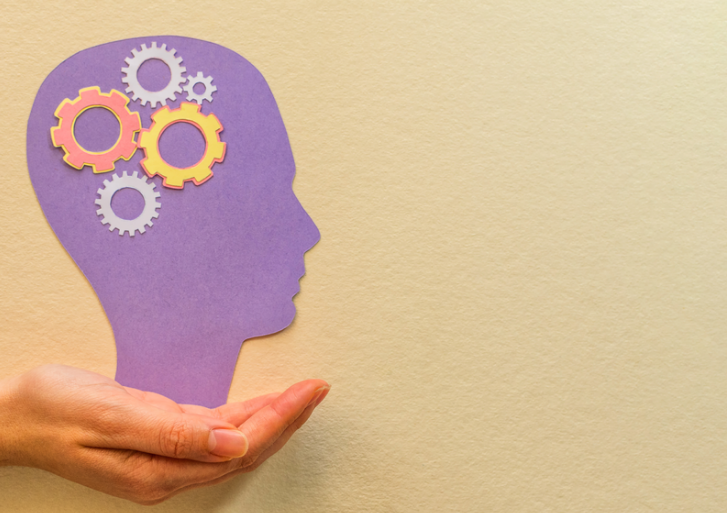Did just reading the word "diet" conjure up feelings of anxiety? You're not alone. In its truest form, the word "diet" is defined as the way a person habitually eats to nourish the body. Yet, over the years, it has become a "bad" word that typically signifies a form of punishment, restriction and deprivation for most people. Just hearing the word or being told (or telling yourself) that you need to go on a "diet" can make a person feel like they've failed before even starting.
Currently, 70 percent of Americans are overweight and, according to the Boston Medical Center, an estimated 45 million people go on a diet every year. That's a staggering number and what's even more disheartening is the estimation that only about five percent
Change Your Vocabulary
By changing your vocabulary, you can gradually shift your perception as a whole. Instead of saying, "I'm on a diet," try saying, "I'm eating healthy." When you tell yourself that you are on a diet, you automatically instill food rules and restrictions upon yourself. Focusing solely on the do's,Using the word diet, in many cases, is a form of negative self-talk. It's usually associated with thoughts of feeling "less-than" and calling yourself fat when looking in the mirror. This destructive thought process actually hinders a person's progress and can even lead to weight gain as to self-fulfill their negative image of themselves.
So, let's change that. Eating healthy is a way of nourishing your body and mind. It is a means of fueling your body to provide you with the energy you need to run errands, be your most productive self at work and enjoy all that life has to offer. When you are eating healthy, nothing is restricted—you are simply choosing better food options today to live a better life tomorrow.
Play the Long Game
Another reason why throwing around the word "diet" doesn't work well for most people is that it is seen as a short-term fix. It's something people go on until they meet a certain goal, or until they slip up and then they're done. This results in the infamous "yo-yo" dieting chain that has most people spinning their wheels on in frustration for months or even years without getting anywhere.When it comes to living a healthy life, it's not a sprint, it's a marathon. When we drop the word "diet," we can then focus on creating sustainable lifestyle habits that will create lifelong results.
Setting small goals is a great way to take the focus off of the larger end goal and help you stay on track. Instead of cutting out entire food groups right from the start, try adding in one healthy habit each week or month.
- For one month, drop the word "diet." Don't use it with yourself or others. Replace the negative self-talk with more positive phrasing ("wellness," "get strong," "eat healthily") and see how your mindset shifts. Encourage those around you to do the same and practice talking to yourself how you would talk to a friend struggling with a body image or weight problem.
- Drink more water. Many people walk around in a slightly dehydrated state. Considering the fact that our bodies are comprised of 50 percent water, they require a substantial amount of water to run smoothly. By increasing your water consumption to healthier levels, you may notice some unhealthy drink options fading away without even trying, not to mention, better energy and more glowing skin.
- Focus on vegetables. Instead of removing or restricting other foods as you would on a diet, simply add in more vegetables to your meals. Vegetables are full of vitamins, nutrients and fiber that increase the feeling of fullness. Add them into stir-fries, casseroles or puree them into smoothies for an extra nutritional boost.
- Get rid of the guilt. It is important to make healthy food choices, but we are all human. Eating a cookie or
piece of cake often results in a downward spiral of guilt and self-loathing. Feeling guilty spawns negative self-talk and many times results in overeating of the food deemed as "bad." After all, you've already blown it, so you might as well just throw in the towel for the day, right? Wrong. A lapse is going to happen. It doesn't have to be a relapse into unhealthy behaviors. Allow yourself to add a treat every once in a while, enjoy it and move on with your day. - Build activity into your day. It can be as easy as taking the stairs instead of the elevator, getting up from your desk every one to two hours to walk around the office and stretch, taking a walk with your family in the evening or starting your day with a brisk stroll in the morning before you head to work. Get creative to build more movement into your day and you may start seeing results without even trying. Remember, exercise is not a punishment and should be seen as a way to recharge your batteries. Bring on those feel-good endorphins!
- Give your body rest. When we are sleep deprived, it puts our body in a stressed-out state. This lowers our willpower to make healthier choices and signals our bodies to release cortisol (a.k.a the "stress hormone"), which can cause weight gain or slow weight loss. When we are well rested we are more capable to handle day-to-day challenges and temptations that head our way. Focus on getting seven to eight hours of sleep each night and head into each day feeling positive and confident knowing you are creating healthier habits for a healthier, happier you.
Don’t let the overall task of losing weight or becoming healthier overwhelm you. Small, simple changes and adjustments to your day-to-day life could be all you need to build a healthier lifestyle. Remember, a big part of changing the way you live is changing your mindset—positive thinking leads to positive action and a more positive, healthier you!











.png)
